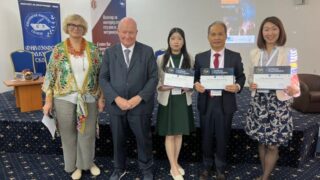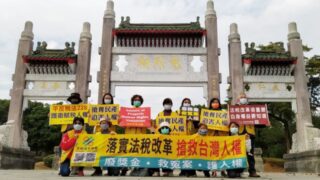One of the origins of the International Day of Human Fraternity is the Italian mystic’s visit to Sultan al-Kamil in 1219. Its message is valid for the Tai Ji Men case, too.
by Massimo Introvigne*
*A paper presented at the seminar “Tai Ji Men: No Fraternity Without Justice,” co-organized by CESNUR and Human Rights Without Frontiers at Tai Ji Men Qigong Academy, Pasadena, California, on February 4, 2023, International Day of Human Fraternity.


One year ago, on February 5, 2022, we were in Walnut, California, for another Tai Ji Men seminar celebrating the Tai Ji Men case in connection with the International Day of Human Fraternity. We noted then that this United Nations day of observance is somewhat unique, as it has been introduced to commemorate a religious event. February 4 is the date when, in 2019, Pope Francis and Ahmed el-Tayeb, the Grand Imam of al-Azhar University in Cairo, Egypt, and the highest scholarly authority in Sunni Islam, met in Abu Dhabi and signed the “Document on Human Fraternity for World Peace and Living Together.” In this respect, it is significant that a Muslim scholar also speaks at our seminar today.
There was a third hidden participant in the 2019 Abu Dhabi meeting, Francis of Assisi, the Italian Catholic mystic of the 13th century. Both the Pope and the Imam mentioned that they were meeting in the spirit of the visit that Francis of Assisi paid to Sultan al-Kamil, the nephew of the great Sultan Saladin, in 1219.
As Pope Francis explained in his encyclical letter on fraternity “Fratelli Tutti” (All Brothers), published in 2020 as an extended comment to the Abu Dhabi meeting and document, that famous visit is easily misunderstood, and one should go back to the original sources.
Clearly, Francis of Assisi was a man of the 13th century, not of our times. The Abu Dhabi document proclaims that, “The pluralism and the diversity of religions (…) are willed by God in His wisdom, through which He created human beings. This divine wisdom is the source from which the right to freedom of belief and the freedom to be different derives.” From the point of view of the Catholic Church, this is the result of a long evolution of the theological reflection on interreligious dialogue and the historical role of religions. Such a statement would have been inconceivable and even difficult to understand at the time of Francis of Assisi.
It is certainly true that he first sent his friars and then went himself to the Middle East in the hope of converting the Sultan to Christianity. Yet, Pope Francis invites us to consider that Francis of Assisi was a realistic and intelligent man, and he knew that conversion might prove ultimately impossible. In the Rule of the Catholic religious order he founded, later called the Franciscans, Francis of Assisi included a provision that the friars who “by divine inspiration, wish to go among the Saracens [i.e., the Muslims] should not make quarrels or disputes, but be subject to every human creature for God’s sake, and confess that they are Christians.”
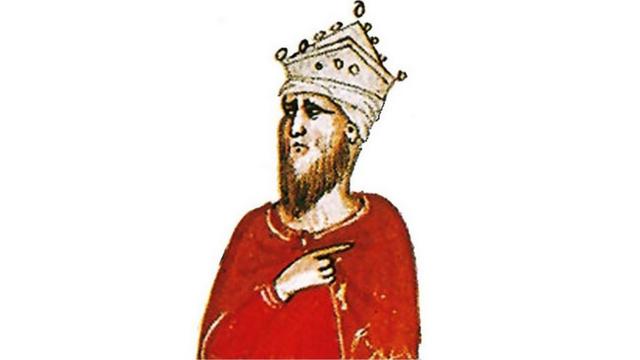

Pope Francis calls the attention on the provision that, while “confessing that they are Christians” and presenting Christianity if allowed to do so, the Franciscans when visiting the Muslims should avoid “quarrels and disputes” and respect the laws of the local, meaning the Muslim, authorities. This is surprisingly modern, and echoes the distinction Pope Francis has often proposed between a respectful “mission” and an aggressive and impolite “proselytism.”
When Francis went himself to Egypt to meet the Sultan, he put these principles into practice somewhat dramatically. According to a reliable source, the memoirs of early Italian Franciscan Jordan of Giano, Francis went to Egypt where the Sultan was encamped fighting the Crusaders for the possession of the port city of Damietta (now Dumyat). Francis spoke Italian only, and was mistook for a spy and badly beaten.
As Jordan reported, “he cried out amid the beatings, ‘Soldan, soldan!’” hoping it will be understood he wanted to meet the Sultan. Out of luck or perhaps divine protection, somebody did understand him, and, as Jordan reported, “he was brought to the Sultan and was honorably received and treated very humanely.” When he had finished his speech, which was respectfully listened to, “by order of the Sultan, he was accompanied with armed escort to the army of the Christians, who were then besieging Damietta.”
Pope Francis believes that the deeper meaning of this story is that we can disagree in matters religious but still find a common ground in fraternity and the sense of being “fratelli tutti,” “all brothers,” an expression by Francis of Assisi himself.
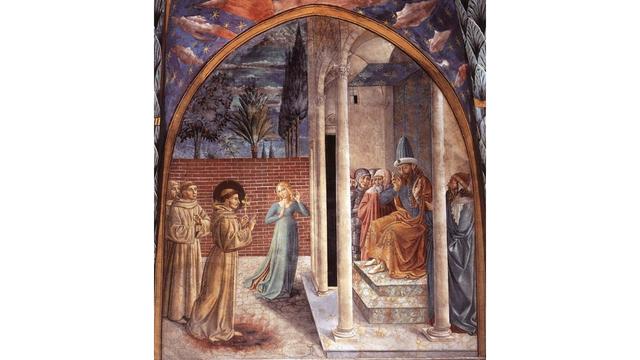

The Abu Dhabi document looks for a content of this fraternity, to avoid the risk that it can be reduced to a rhetorical and romantic proclamation. Fraternity is based, the document says, on an “awareness of the heart” that we are all united by moral values, respect, and dignity. It is what Dr. Hong and Tai Ji Men express through their appeal to conscience.
The document also denounces political corruption as a consequence of losing this awareness, and warns that religious and spiritual minorities often pay the heaviest price for this corruption. The use of the word “minority” may become in itself a source of discrimination, and the Pope and the Imam promised to “reject the discriminatory use of the term ‘minorities’ which engenders feelings of isolation and inferiority.”
Isolating and discriminating a spiritual “minority” was what happened in the Tai Ji Men case. This derived from corruption, and corruption derived in turn from losing that “awareness of the heart” that is conscience, making fraternity impossible.
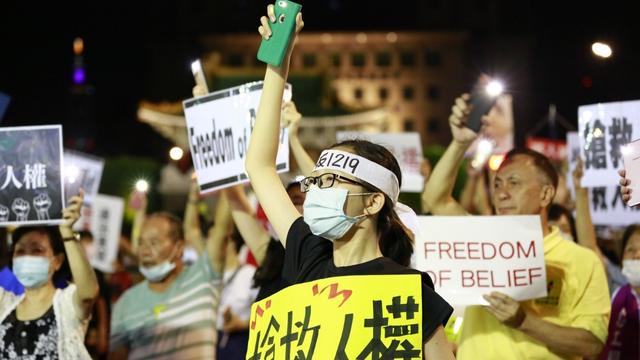

May this International Day of Fraternity be an opportunity to reaffirm that we can be “all brothers” (and sisters, but Francis of Assisi wrote eight hundred years before the advent of gender-inclusive language) only if we respect the rights of the groups we call “minorities” to pursue their own path. That Taiwan authorities may embrace Tai Ji Men “without quarrels or disputes,” as Francis of Assisi said, and with respect, justice, and fraternity may seem just a dream, after more than 26 years of discrimination. Yet, we are here to reaffirm that some dreams are so strong and beautiful that in the end they come true.






